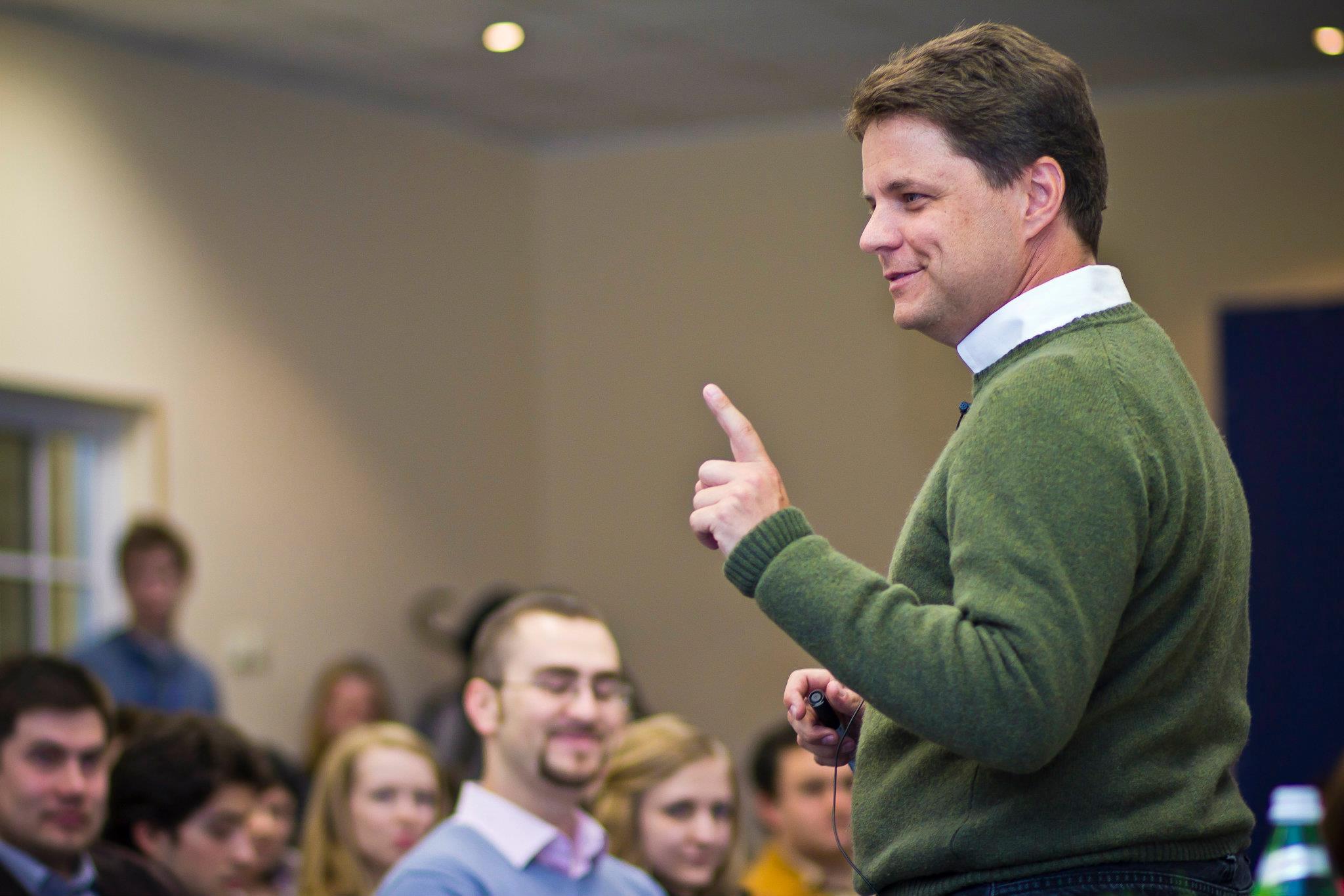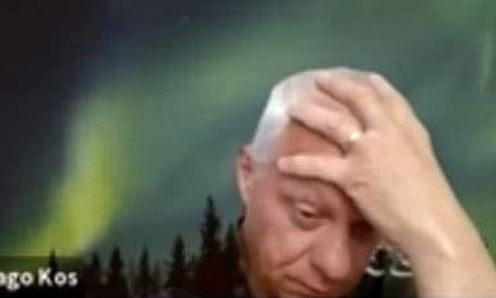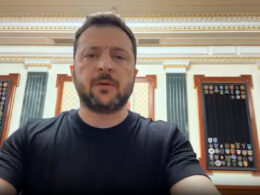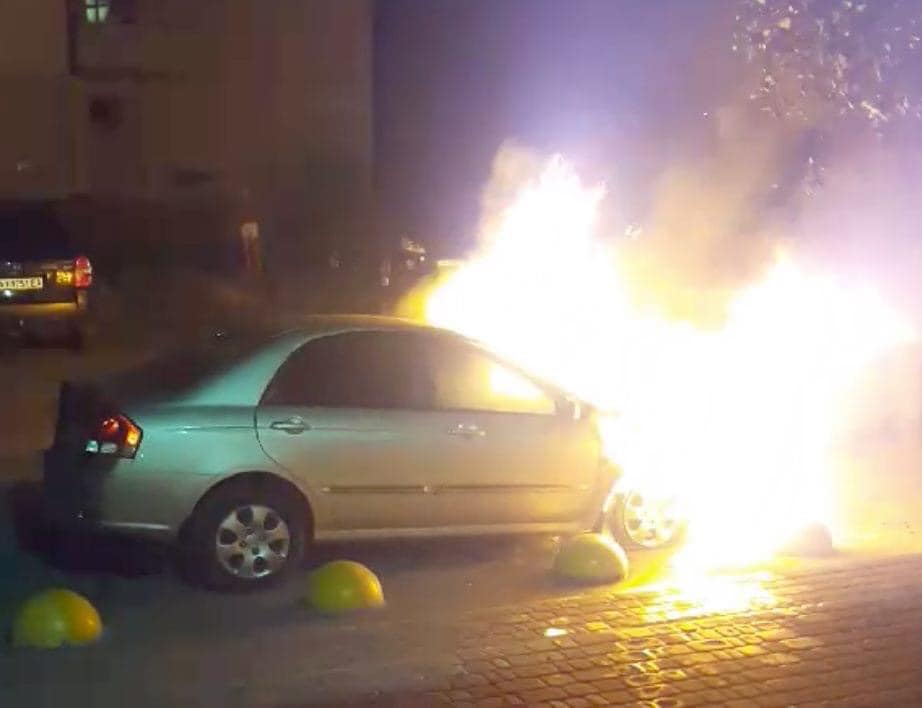In wartime Ukraine, president Zelenskyy pulls all the shots and gets the spotlight. But in parallel, the war-induced mass mobilization of society is creating a uniqiue form of horizontal decision-making. It is the latter that will shape Ukrainian post-war society, says Ukrainian social scientist Mychailo Wynnyckyj. In this interview: why Ukraine is not as poor as believed, why the Russian empire will end on the battlefields of Ukraine, and why Ukraine is just like the USA when it was gaining independence.
These are just some of the issues Ukrainian sociologist Mychailo Wynnyckyj covered in an exclusive interview with Euromaidan Press
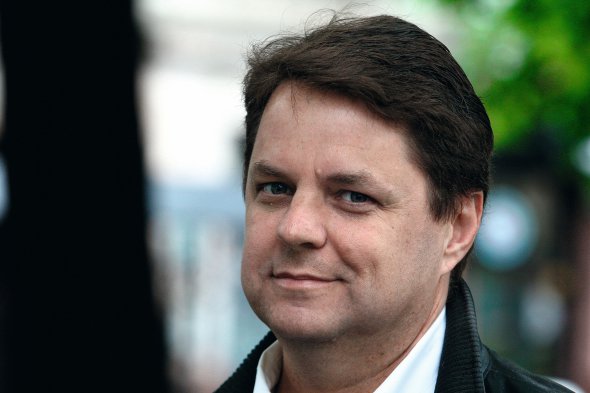
Mychailo Wynnyckyj is a child of Ukrainian post-WWII immigrants to Canada. More than 20 years ago, he decided to move to Ukraine. Today, Wynnyckyj teaches sociology at Ukraine's leading university, Kyiv-Mohyla Academy, and was educated in Canada and at the University of Cambridge, England, specializing in North American and European history – in particular, revolutionary processes. "It was not just historical analysis, but also social sciences analysis. I'm trying to constantly compare the past to the present while viewing the present," he told us.
Revolution, war, and new forms of governance in Ukraine
Ukrainians achieved victory in the Orange Revolution in 2004 and then in the Revolution of Dignity in 2014. Now, during the Russo-Ukrainian full-scale war, Ukraine had already had some success. In your view, what is the source of these Ukrainian victories?
Wynnyckyj: When we talk about the first couple of months of the war, first of all, the Russians believed in their own propaganda – namely, that Ukrainians were waiting for the Russian invasion and wanted to be "denazified" or made into Russians. It obviously turned out to be completely false. The reaction of Ukrainians was very patriotic. There was a movement in terms of consolidation of identity, which led to mass mobilization.
During the Orange Revolution in 2004 and the Revolution of Dignity in 2014, these were also periods of mass mobilization when people stopped going about their business, stopped going to work, stopped studying, teaching, doing all of the things they would normally do, and mobilized for a particular cause. And while In 2004 and 2013–14, these were protest movements, since 24 February 2022, this has been a mobilization in terms of defense. Massive numbers of people volunteered to the armed forces. As well, many volunteered with logistical support for the army and overall mobilized to help the country to function.
This kind of mass volunteering is very typical for Ukrainians now. How do Ukrainians organize? From the sociological point of view, we like to use the word horizontally – into networks – but it's not about horizontal networks. It's still about leadership, but not necessarily institutionalized leadership, as you would normally find in government and military bodies. It's all about the term heterarchy – it's flat with little "bumps." Periodically, there will be leaders that will turn around and say, "Hey, this needs to be done, and I'm doing it. And by the way, it's for a good cause. So mobilize around me." They normally don't even say "mobilize around me" because people just do it.
Ukraine saw this in 2013–14 protest movements in Maidan
sotnias [hundreds], and definitely now in the military. Fighting around Kyiv was more similar to hunting than to a military operation.
Ukrainian theology professor turned sniper tells how to hunt for Russian invaders
A group of 10, 20, maybe 30 soldiers around a lieutenant would be told, "Some Russians are advancing. We need to stop them." Where and how the fight will happen was determined at the grassroots level. Orders were given in a very general way. It turned out to be highly effective because what Ukraine faced from the Russian side was a very bureaucratic, poorly-equipped, poorly-motivated, but nevertheless hierarchical army.
When Russian soldiers were cut off from command, they didn't know what to do. They were simply stymied. Whereas the Ukrainian soldiers, being motivated and organized in the network of heterarchical groups, knew exactly what to do. They took their Javelins, Stuhnas, and NLAWs, and destroyed tanks in massive numbers. They were, of course, prepared. Many were trained by Western advisors, and much of the training between 2014 and 2022 was about the insurgent type of conflict, based on small group tactics – which the Russians were completely unprepared for.
While I'm sure this current war is the continuation of the 2014 Revolution of Dignity, I'm not sure we can talk about the Orange Revolution and the Revolution of Dignity as a continuous event. The first was strictly political – it was about a party and a particular candidate, a traditional "Color Revolution." Whereas 2013–14 was a protest movement of the creative class, a new middle class of people who make their living doing intellectual things: programmers, journalists, teachers, and so on. That kind of revolution is a social revolution and also an identity revolution. This kind of revolution has a continuation.
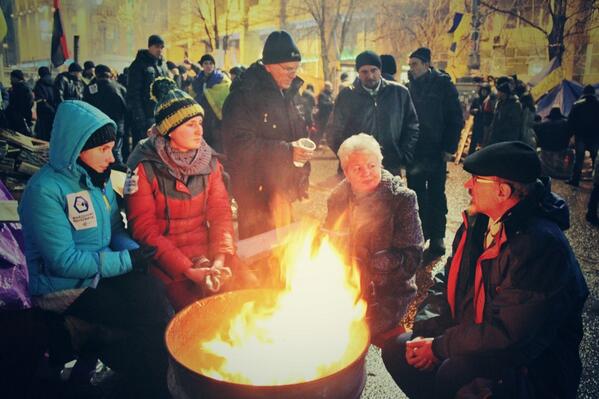
In my book, I argue that revolution and war are continuous events. The revolution started in 2013 and is continuing now in a different phase, or, if you like, the war started in 2014, and it is continuing now in a different phase. We're talking about one continuous process that has been going on for eight years, completely changing the values, the way Ukrainians organize themselves, and the way the state institutions will be organized. This is very similar to the American Revolution, French Revolution, and Soviet Revolution. All of them took a long time.

The American Revolution started in 1776 and ended in 1789 with the adoption of a new constitution. The last British soldier left the territory of the 13 colonies that became the United States in 1783. It took them seven years to get rid of the British occupation. The French did not fight a war of independence. Their revolution started in 1789 and ended with the Napoleonic Wars. So, revolutions and war are usually attached one to the other.
Ukrainians often like to separate these things and say that the Revolution of Dignity happened eight years ago, then there was a small-scale war in the Donbas, and now there's a big war. These are not three separate events but are all part of the same transformation of society – by the way, not just in Ukraine. Russia as an empire must end. And it is ending on the battlefields of Ukraine.
Wynnyckyj: I first came to Lviv in 1989 for a student exchange when I was 18. Lviv then was exciting all the time, and I really liked it. I was in Plast [Ukrainian scout organization] in Canada, where we were brought up in a patriotic spirit. When I came to Lviv, I realized it all had much more relevance than just sitting by the bonfire in some forest with mosquitoes. In 1990, I came again, and then in 1991, I came to study for six months on a student exchange in Dnipro. In the 1990s, I constantly traveled back and forth. It was precisely this "horizontality" – this Ukrainian anarchy – so to speak, that really attracted me. Although "anarchy" is considered a bad word, I believe it is a good word because it is possible only if everyone recognizes each other's equality. And in 1998, while at a conference in the US, I met a woman, Marta, purely by chance, and four years later, she became my wife and eventually the mother of our four children. I remember the first evening we met when we just sat and talked for five hours and saw a lot in common. And one of the questions was about what she would do after finishing her studies. At that moment, I had many acquaintances from Ukraine looking for a way to stay in North America. So I wondered if she was interested in me or my Canadian passport. She said she wanted to return to Ukraine. I was just entering my PhD program when she returned to Ukraine after her studies in the States. I hesitated between England and America and realized it would be much faster to travel to see Marta from England than from America. And when I returned to Ukraine, our life there began. 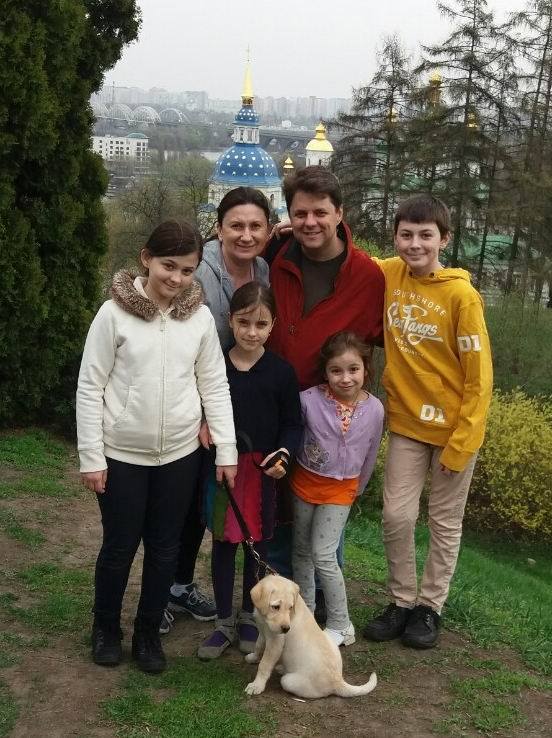
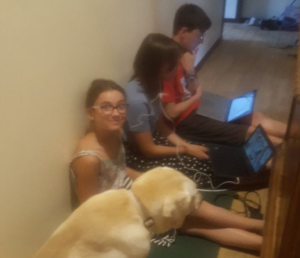
You once argued that what we see now in Ukraine is similar to the American Revolution and could lead to new forms of social and political organization. What forms could these be?
Wynnyckyj: When the United States was gaining its independence, this was a bunch of farmers on the outskirts of civilization in colonies that basically were accepting anybody who wanted to go there. This was the frontier of civilization. Ukraine is like the US, on the frontier of civilization. But we're different because the US was formed by immigrants and Ukraine was not.
The reaction of Europeans to Ukraine becoming a member of the EU is like, "Whoa, wait a second. Let's think about this a little bit." Ukraine is on the frontier, but in the minds of Europeans, they're somewhere far away.
Frontier society is where dramatic social change happens. In the 18th century, no one in Europe would be able to imagine that a state could organize without a king. These were all monarchies and empires, with a couple exceptions, like in Poland, where the kings were elected. But, at the end of the day, it was always about this passage paraphrased from the Bible, whereby "Power comes from God. Before Napoleon – who was the first to crown himself – the Pope had always done so.
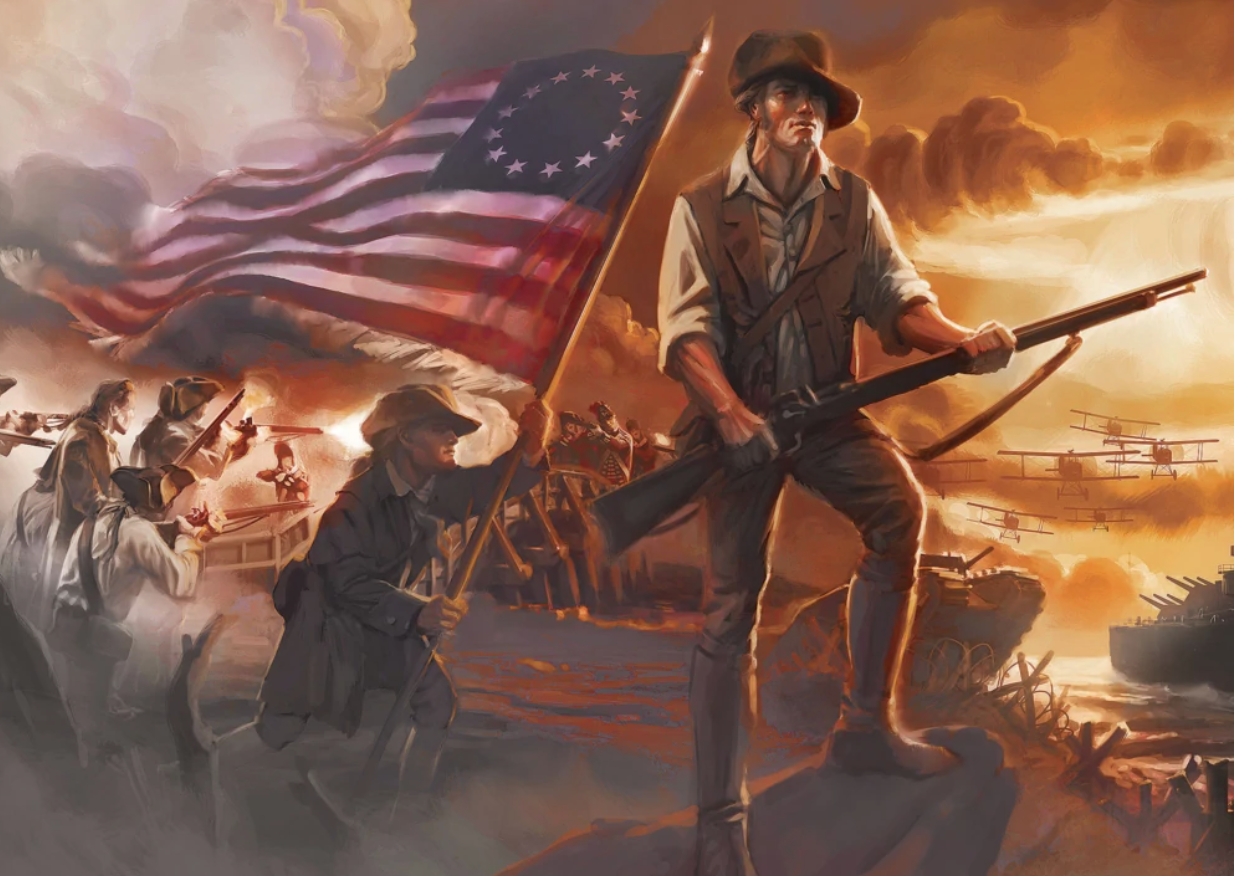
Mural, American Revolution, Museum of Freedom.The American Revolution was about creating an institution of a state without a king, a republican democracy. The discussions ranged from – How do we create a congress? … Do we have a president or not? … Are we a confederation or a unitary state? All of these concerns were about creating something new, some new institutions.
The Americans were at the start of industrialization, yet, Ukraine was at the end of it – going into some sort of post-industrial society worldwide, where wealth is created not through making things but through thinking and creativity, and not necessarily material creativity. And Ukraine is experiencing a global protest against hierarchy, which Ukrainian's don't like.
Suppose in the 18th century the question was about how to get rid of the king in order to create a country that could be governed without one. Today the question is how to create a country (like the United States) that will not be about a single president and balancing powers within three branches of the power hierarchy. Now it's about how to recreate systems of governance through smartphones? How to create a scenario where people are actively involved in governing themselves? We don't necessarily need hierarchies to do that. Heterarchical leadership is about what's successful, whether on the battlefield, or in the volunteer movement. It's short-term leadership that deals with a project that needs to be done within a particular time frame.
This leadership is temporary. It's not about electing someone to serve a particular term of four or five years. It's not about creating bureaucracies that are going to manage processes, which (German sociologist 1864-1920) Max Weber was very excited about looking at new hierarchical institutions in the industrial age. I'm excited that in parallel to the war, there are hundreds of little groups of people that are getting together, be it on social media (mostly), or be it face-to-face. And they're thinking and planning what Ukraine is going to look like after the war is over.
In American Federalist Papers, Alexander Hamilton, James Madison, and others were writing pamphlets discussing how they would be able to create new institutions once the 13 colonies became independent. And I think what we're not doing (in Ukraine) is writing papers – we're meeting and talking. I think we're in the process of creating something very new, even though the war is far from over. Ukraine needs the last Russian soldier out of our territory to create those institutions. That's going to take a while. But if they don't start planning it now, then it will be too late.
Before the full-scale war, Ukraine was often told that it did not have strong enough institutions. Moreover, it seems that Western European countries often do not understand Ukraine and how civil society here is able to influence political issues.
Wynnyckyj: That's not surprising. Imagine if you had never lived in a country that didn't have a king, and suddenly someone told you, "I want to create such a country." You would say that's stupid and that one needs a king. In our case, Europeans wonder, "What new institutions are you talking about? You have a war to fight. And you have a very charismatic president." And that's true. The moment of leadership happened. When Americans offered to evacuate Zelenskyy, he said, "I need ammunition, not a ride." And that was an excellent phrase.
To a large extent, Zelenskyy is Ukraine's George Washington, who was considered a quasi-king to a large extent, and people were not expecting him to give up power when he did. Zelenskyy is behaving like a Western President the way Western Presidents should behave. And he is doing it in the way that most Westerners would look and say, "Wow!" Ukrainians look at it and say, "Well, of course, he didn't run away. If he had run away, he wouldn't be a president. He would be forgotten by history."
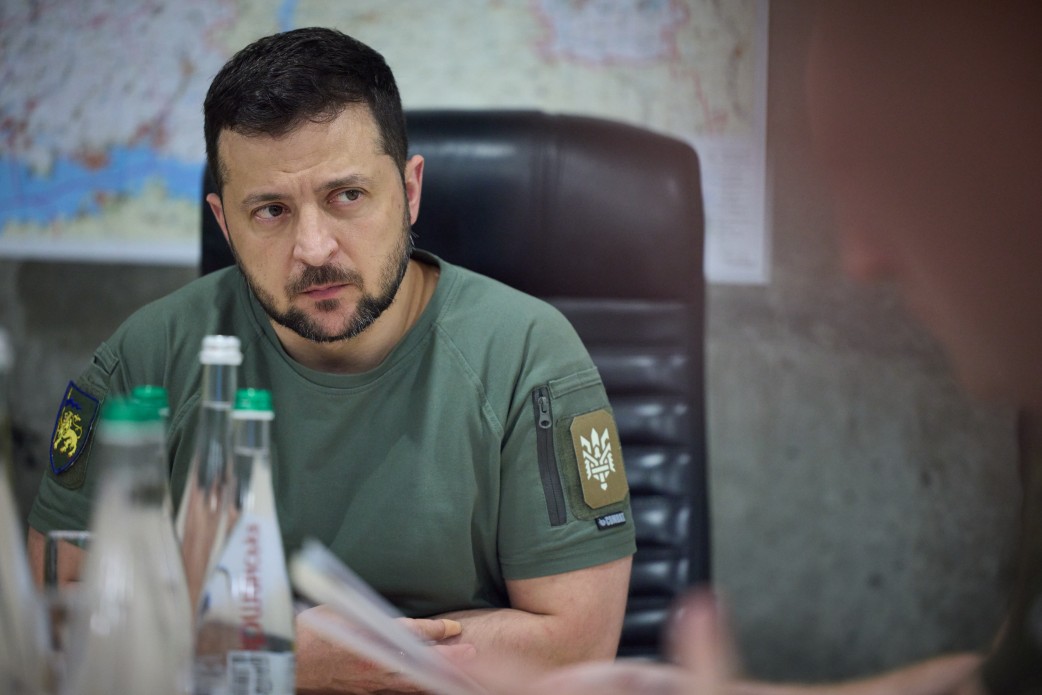
When the war is over, Ukraine will probably no longer need the kind of constant PR in the West, which Zelenskyy is really good at. Ukraine will probably re-institutionalize ourselves in a way that will be different from the Western institutions – different from the American model, very different from the French and the German model, possibly a little bit more similar to that of Scandinavia. It's going to be collective leadership rather than personal leadership.
As a matter of fact, in the last three months, I've become a huge supporter of Zelenskyy. I think he's doing a fantastic job, but not domestically. The job of a War-time President is to mobilize military, economic, political, and diplomatic support for Ukraine, which he is doing well. I have many questions about what he's doing domestically, but he should have a team.
However, because it's a very hierarchical structure, the team is not working because it's all up to the president. That will end. Winston Churchill in 1945 won the war but then lost the election. They re-elected him later. But just because he was a fantastic leader in war does not mean that he had the trust of the British people in peace. I think that parallel is going to happen.
It's not a question of who instead of Zelenskyy. It's not a question of Zelenskyy versus Poroshenko or some other person; that's yesterdays. It's how do we recalibrate the country so that Ukraine doesn't need a single president, but a future where decisions are made by groups of people instead of individuals, is it collegial decision-making or a communitarian kind of model. I think that's what Ukraine has proved successful on the battlefield, in the volunteer movement, and in the protest movements. And now Ukrainians need to figure out how to make that work on a countrywide scale in governance.
Ukraine's economy: Ukraine is not that poor as conventionally perceived
When looking at our GDP, people in the West often say, "Oh, Ukraine is a poor country; you cannot do anything. You are almost on the same level of Africa." But it is hard to believe that the quality of living in Ukraine is much worse off than in Europe.
Wynnyckyj: Even take a look at these cars that are driving by. Absolutely.
So how would you explain that?
Ukraine is often compared to Russia in terms of GDP per capita, which is obviously very high in Russia. But take a look at the Russian soldier invading Ukraine. He is surprised that Ukrainians have washing machines in villages and toilets inside houses because the Russians truly do live poorly. Statistics show that in some areas of Russia, there are 70% that don't have gas. There are 20% of the country that doesn't have electricity on a regular basis. It's Moscow and St. Petersburg that are truly rich. Social inequality is hiding the fact that Russia is, in fact, a poor country.
Ukraine is a socially-equal country, although we constantly talk about oligarchs and corruption. But the difference between lifestyles (and this is something we've seen in the last three months) in villages and in Kyiv is not that dramatic – though rural life is always different from urban life. Our Gini coefficient [the extent to which the distribution of income or consumption among individuals or households within an economy deviates from a perfectly equal distribution] is about the same as Sweden.
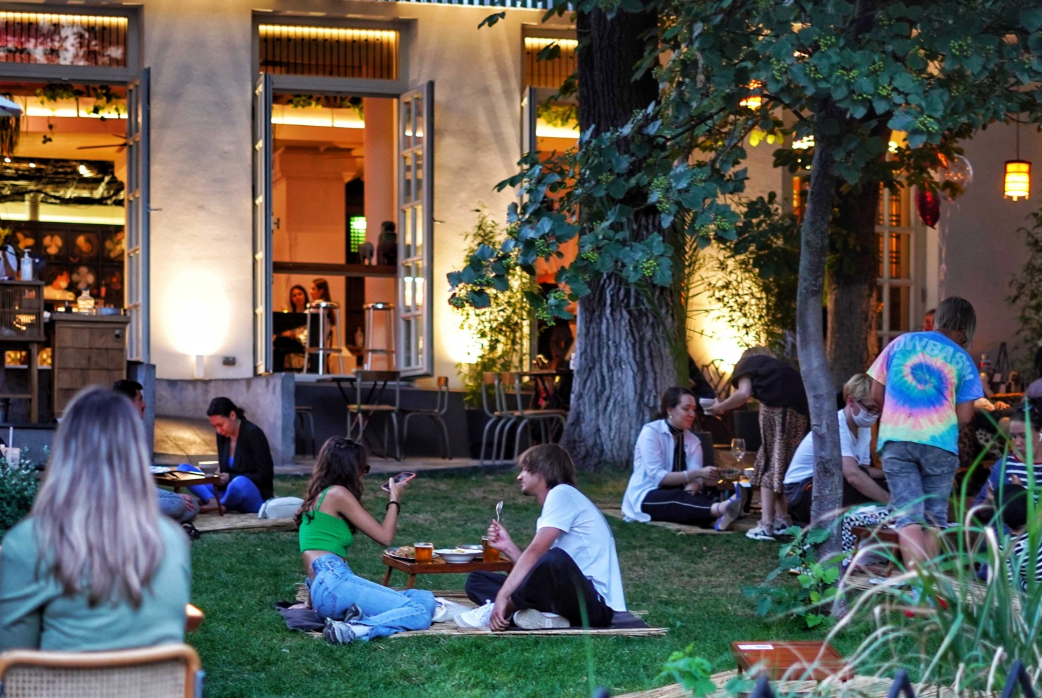
Even Poland is more unequal than Ukraine. GDP statistics in Poland show that Poland is twice as rich as Ukraine. I think that's problematic. It's important to talk about what's called purchasing-power parity rather than nominal statistics. Ukraine is three times poorer than Poland in terms of nominal statistics, which is obviously wrong. But if you look at the hryvnia [Ukraine's currency] and its purchasing power, it is much higher than the
zloty [Poland's currency].
Ukrainians don't save. That's one of the things that is very different from other developing countries. It has a very low savings rate. Money comes in, Ukrainians spend it – and the "shadow" [not official] economy is significant. It's getting smaller, but in 2014 about 50% of the economy being in the shadow. So you would take GDP statistics and double them to figure out the economy. Before the war started in February, probably about 30-35% of the economy was in the shadow. That doesn't necessarily mean corruption. It means that Ukraine is a cash economy, an economy where people don't necessarily like to pay taxes very often. In this sense, being very similar to Sicily, for example.
But even compared to European countries, it seems that Ukrainians don't live much worse off. For example, while Europeans usually rent apartments, many Ukrainians own them, and medical care and services are far cheaper in Ukraine.
Wynnyckyj: You have a good point. In 2013, just before the protests, I spent six months in Glasgow teaching at Glasgow University. Obviously, the standard of living is generally higher, but it is costly to live.
There is a huge difference between nominal GDP in Ukraine and GDP corrected for PPP. The hryvnia exchange rate to the dollar was set at 27 hryvnia per US dollar before the war. However, because prices in Ukraine were too low compared to world prices, the true exchange rate should have been 17 hryvnia per dollar to make them equal. This would have increased Ukraine’s GDP statistics. The Ukrainian hryvnia is traditionally undervalued and prices are low, making Ukraine poorer in statistics than in reality.
Ukrainians like to say that the average monthly salary in Ukraine is $500, that $500 buys the equivalent of over $1,000, perhaps, $1,200 in the US to date. And when Ukrainians talk about salary, they always mean after-tax. Whereas, in the West, people mean before tax. The average salary in Ukraine is still lower than in the US, but it's not desperate and definitely not below the poverty line.
If you really want to see poverty, not statistics, go to Kenya or Tanzania. I've been there and it's really depressing. These countries are open for tourism, so I'm not even talking about the countries that are closed, like Zimbabwe and Uganda. And according to statistics, they're supposedly the same as Ukraine's. Come on. There's something wrong with the statistics.
Ukraine's future
What challenges await Ukraine? For example, there is a widespread belief that Ukrainians are adept at mobilizing in times of crisis but that in times of peace, they tend to argue.
Wynnyckyj: This is the first time I'm publicly talking about this. I have always been very optimistic that Ukraine is going along the path of revolution that the United States went after the declaration of independence and regime change. They eventually started talking about what institutions would be built, and then there was a constitution.
Then there's the French and the Soviet path, where after regime change, there's a slightly quiet period of sort of "quasi-reforms." And then there's a terror where the country descends into a period of internal war – guillotine in the French case, or Stalin's repressions in the Soviet case.
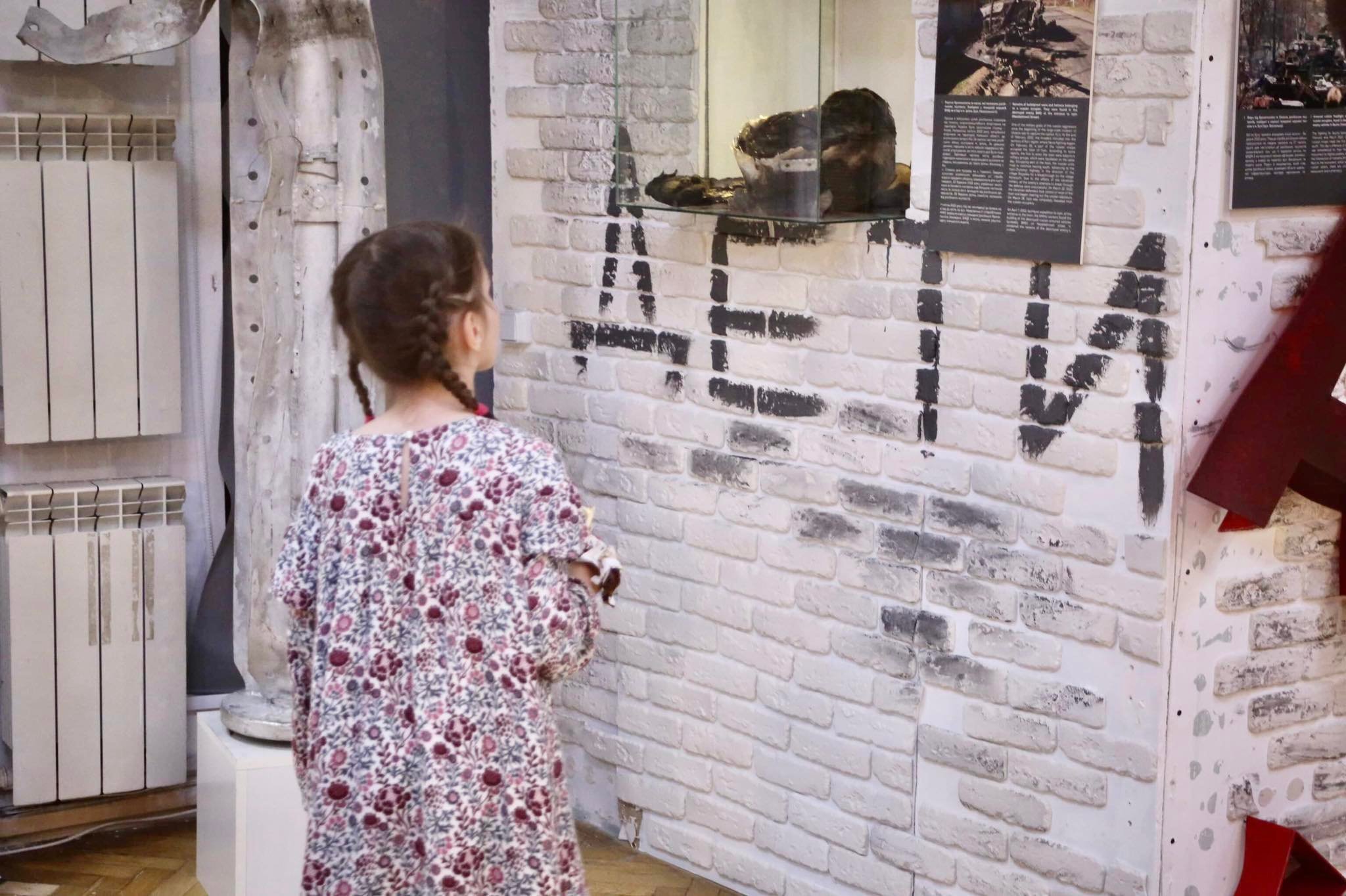
I'm very concerned about what happens when the war starts to die down, if Ukraine doesn't push back the Russians completely. And even if they do. I'm listening to many of my friends fighting in the east. They feel betrayed. So, there is a disadvantage to the idea of non-hierarchical structures because it more-or-less says, "Okay, you guys go off and do what you want. Ukrainians often thank you very much for doing what you're doing, defending Mariupol, and making a last stand. But at the end of the day, they aren't going to help you." People expect help from their commanders, but there is no help because the commanders are either incompetent or incapable.
I am concerned about what happens internally in the country if there is no plan of what Ukraine will do after the war. If Ukraine doesn't have a consolidated vision, there will be multiple visions, and those visions will all have weapons. Some of the soldiers are disappointed … disillusioned even. That creates a lot of possibilities for anger. Anger and hatred can lead to internal force.
I'm not saying it will happen, but there are two paths Ukraine can follow. I've always been very optimistic about the fact that they're following the American path. I'm not sure that optimism is now justified. But it needs to really be work at and not left to descend down the French and Russian paths.
Related
- Ukraine is now an EU candidate. What happens now? When will it...
- I’m done believing we’re the stupid ones, Ukrainian soldier tells Jonathan Franzen
- Russian ideology: imperialism, militarism, and racism
- Lviv Garrison Church chaplains help soldiers find God amid war. And a pair of good boots
- Ukrainian theology professor turned sniper tells how to hunt for Russian invaders
- I am a researcher, not a military man. But there is war...
- “Dearest daughter, it’s total Hell. Death is everywhere” – Ukrainian father on the frontline
- Russian occupiers launch war on Ukrainian history, burning books and destroying archives
- The Russian invasion of Ukraine is an assault on the very concept of freedom
- From retiree to millionaire: 7 stories of heroism during the war in...

